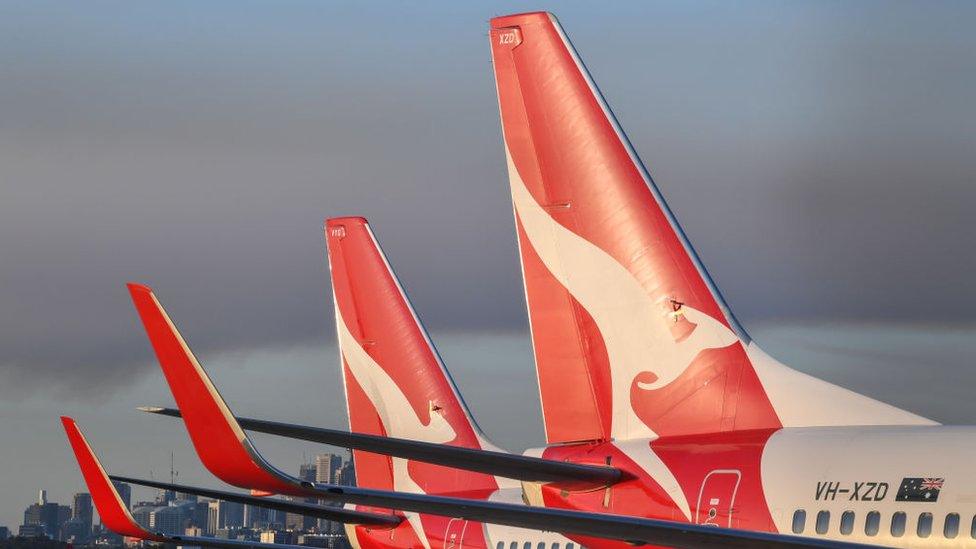Covid: UK expats struggle with Australia lockdowns
- Published
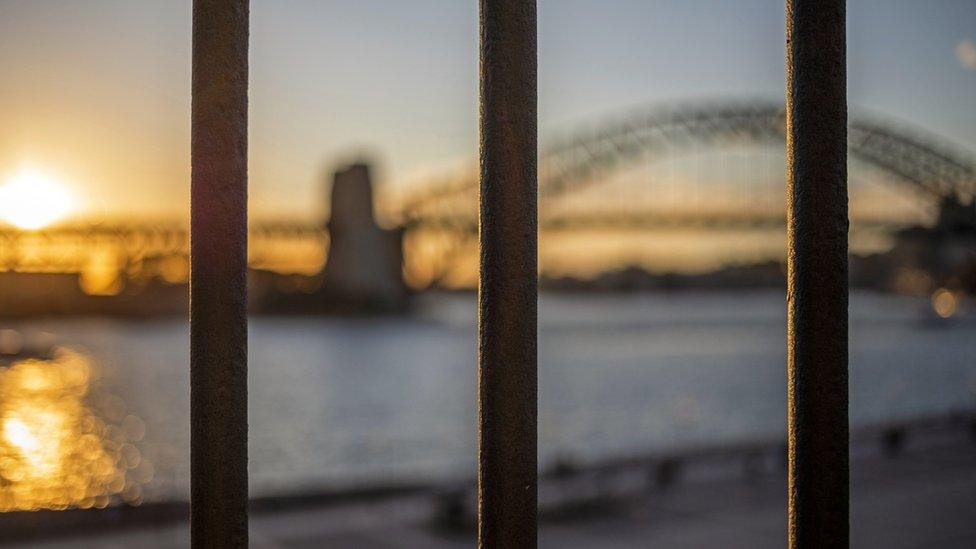
Being unable to see family and friends from overseas for months on end has left many expats in Australia feeling trapped
With a relatively low Covid-19 death rate, Australia has been praised for its efforts controlling the virus. But as millions of residents are in their sixth lockdown amid rising numbers due to the Delta variant, how are British expats coping as the country's borders continue to be closed?
While some of the harsher realities of persistent lockdowns range from job losses and mental health crises, simply being unable to see family from overseas for months on end has left many feeling trapped.
'Home suddenly feels like such a long way away'
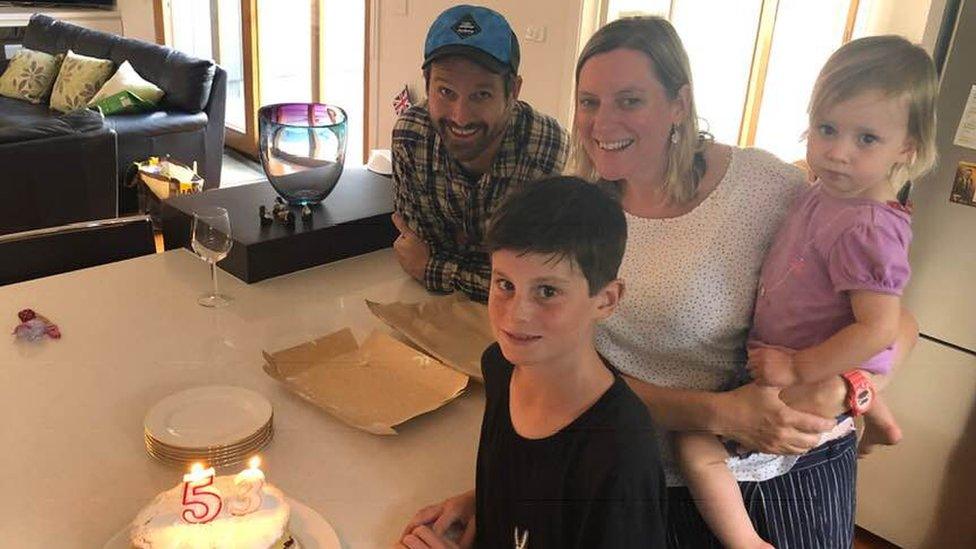
Julia O'Brien is praying she will be able to visit her family in England in 2022
As more than 1,000 people died every day with coronavirus in the UK when the pandemic's peak was at its worst, Julia O'Brien could only watch in horror at her home more than 9,000 miles away.
The nurse has lived in Australia for more than 13 years, but back in her UK hometown of Redditch, Worcestershire, she knew her relatives and friends were navigating the hardest times of their lives.
"I just remember feeling so guilty, I didn't tell them what I was doing each day - I didn't want to say 'oh I'm going to the beach today' when things were so bad," she said.
"I was really worried for my family."
As the virus began sweeping across the world, the Australian government swiftly closed its borders to to all non-residents on 20 March, 2020, three days before England's first lockdown began.
Cases and deaths down under remained comparatively low and, by October, the country was recording no new cases at all - just as the UK's second wave was gathering pace.
Eleven months later, the countries are in contrast once again. England has "opened up", with all legal restrictions at an end, despite thousands of new Covid-19 cases being recorded daily.
In Australia, cases so far total about 60,000, and total deaths at just over 1,000. But about half the population is currently in lockdown due to outbreaks in the cities of Sydney, Melbourne and Canberra, with the Delta variant causing cases to rise more rapidly and the government has been criticised for a slow rollout of the vaccine.
'Horrible feeling'
The borders have now been closed for 18 months and millions of people are on their sixth lockdown. The government wants to vaccinate 70-80% of the population over 16 to exit lockdown - with prime minister Scott Morrison saying Australians must learn to "live with the virus" in a U-turn from aiming for zero cases.
Julia's hopes of temporarily returning to the UK to live and work close to family before her son started secondary school have been thwarted. And like thousands of others, the inability to see close relatives for almost two years has been agonising.
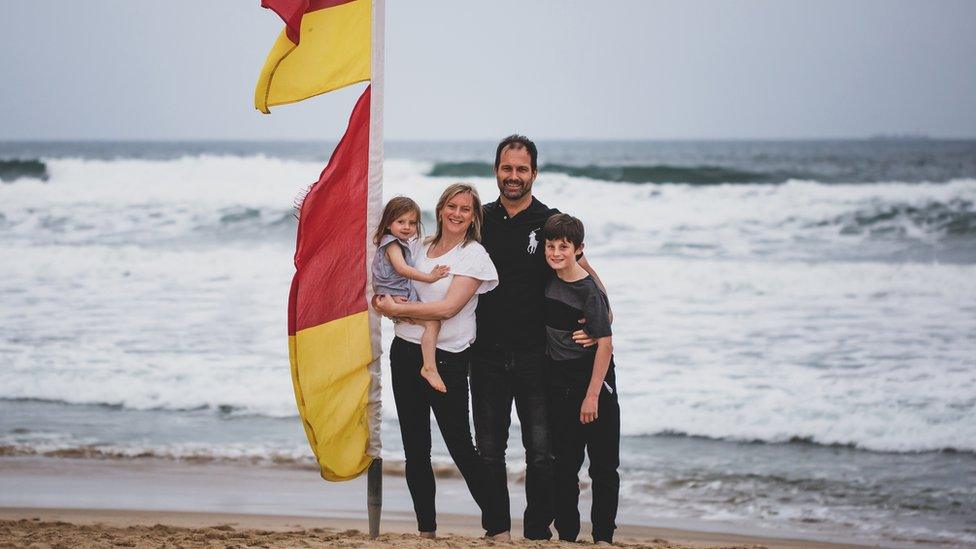
Julia, Jeremy and their children, pictured here in Australia, last flew to England in 2019 for a family Christmas they will treasure
"I've always had in the back of my mind 'I can always go home, it's only 24 hours' flight'," she said.
"It's such a horrible feeling, being trapped and unable to leave a country. I've had expat friends have babies and they haven't met their grandparents yet, funerals and weddings via Zoom, all of us unable to know when we'll hold our families again.
"The hardest thing is not having an end. My mum is desperate to come out here and see her grandchildren. It feels against your human rights not to be able to leave a country."
She now has her sights set on a family gathering in the UK in June 2022 and imagines the first meet up will be like the opening scene of the Richard Curtis film Love Actually, where loved ones are reunited at Heathrow Airport.
"That first scene has always made me sob but now it's even more poignant, that first hug will be amazing and that is what is keeping me going."

'I can see the government has tried to protect us'
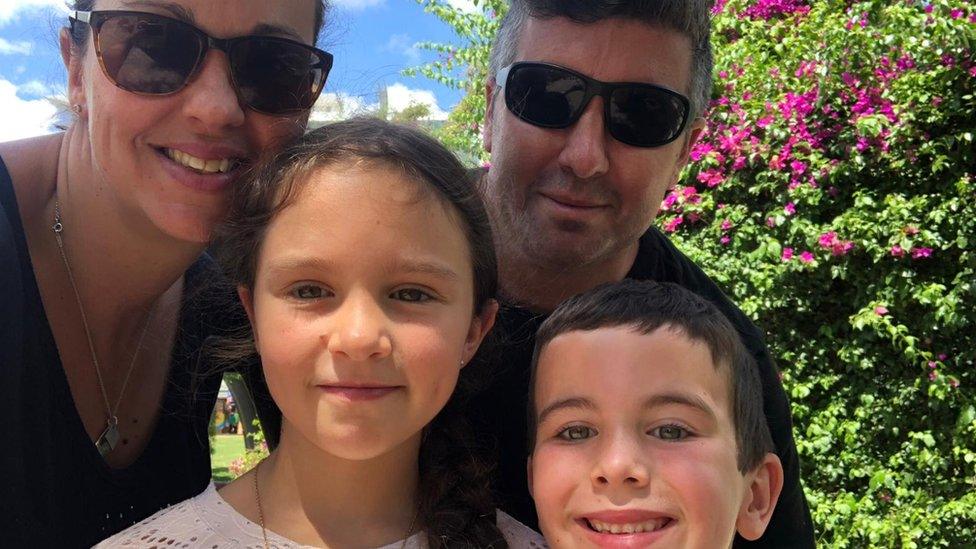
Nurse Karen Goddard said Australia did not have the hospital capacity to deal with thousands of very poorly patients
Like thousands of other health professionals, paediatric nurse Karen Goddard and her colleagues at Geelong Hospital were trained to prepare for a potential surge of very sick patients on the children's ward if the virus rampaged through communities.
But rather than see an influx of young people with coronavirus, they have instead largely been managing the consequences of multiple lockdowns.
"The ward had been eerily quiet but it changed as the mental health issues amongst children escalated," she said.
"We've seen an increase in behavioural disturbances, suicide attempts and eating disorders. Restrictions on visiting at the hospital has meant only one parent allowed at any one time, putting pressure on families, so supporting them at this time has been hard too."
Karen, a British expat originally from Worcester, made Australia her home after going travelling shortly after leaving university. There she met Matt Goddard, from Wantage, Oxfordshire, and they got married and had two children.
They have not been back to the UK as a family since 2015 and Karen's sister's wedding, due to take place in 2020, has been put on hold until everyone can be reunited.
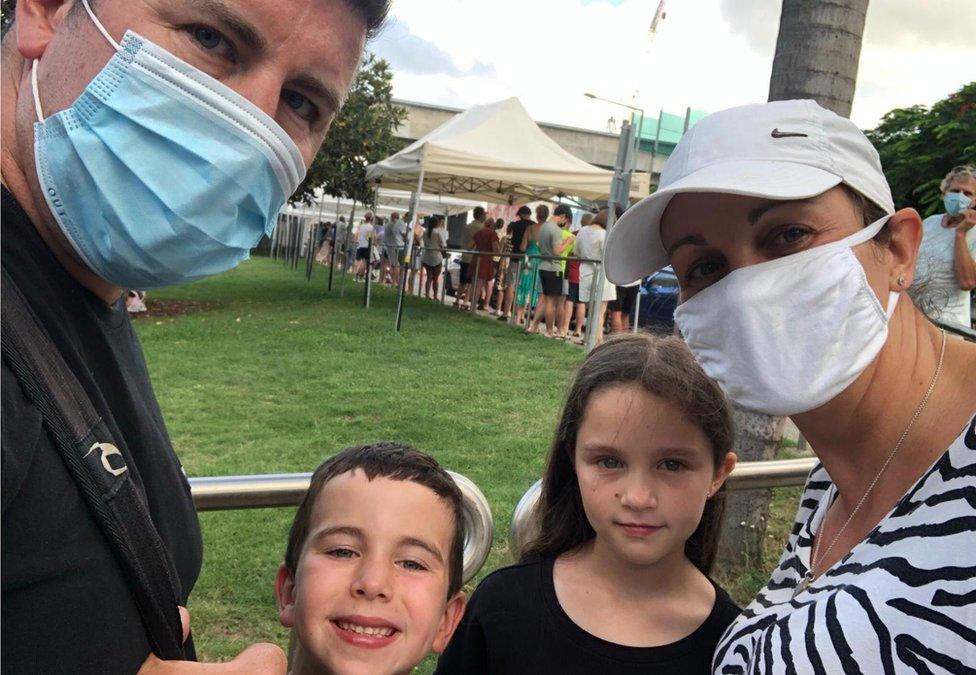
The Goddard family have not been back to the UK since 2015
Eighteen months on from the first lockdown, part of the Australian state of Victoria has just emerged from its sixth. Restrictions included remaining in a 5km (3.1-mile) radius of home and anyone over 12 wearing a face covering inside and outside after leaving their properties.
People could go out for up to two hours' exercise a day and beaches could be walked on, but visitors must not stop.
"Being in healthcare I can see where the government has been coming from [locking down quickly], we don't have the hospital capacity to deal with sick Covid patients. I can see that they've tried to protect us," said Karen.
They wonder if another lockdown will soon be announced.
"It feels like it's dragged on - it seemed like at one point we were the envy of the world but here we are, 12 months later," Matt said.
"We're not going to get the numbers down to zero."
They have watched as the various states have tackled the virus differently - with Victoria locking down much more quickly than New South Wales, for example, and the political fallout causing rising tensions.
"It's definitely divided the country," said Matt.

'This lockdown seems to have hit people the hardest'
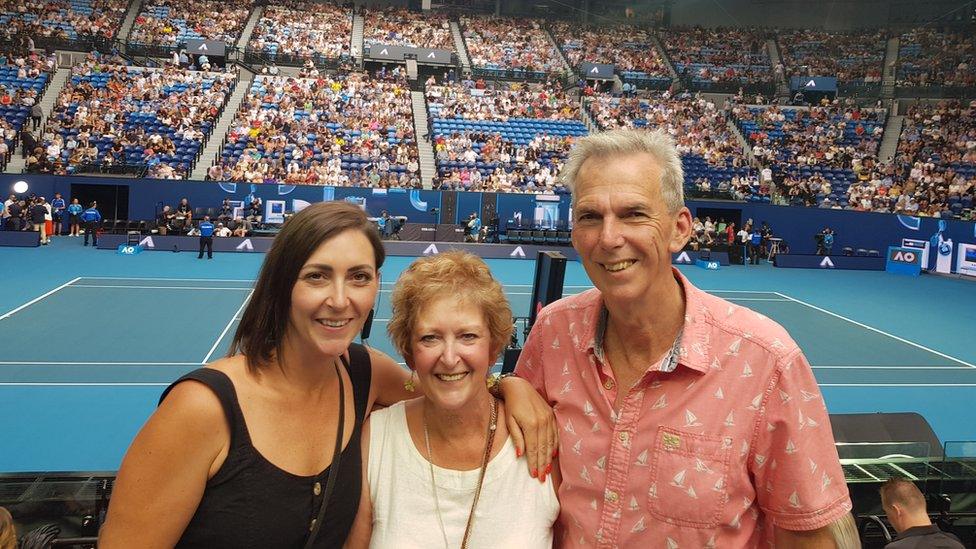
Felicity Foley is "beyond sad" she will not get to celebrate with her parents as they turn 70
Felicity Foley arrived in Australia in 2009 "with one backpack and a great tan" after travelling through south-east Asia.
"It was never my plan to stay but I met my partner - also a Brit - piggy-backed on his sponsorship visa and 12 years later, Australia feels like a home away from home."
The couple had two daughters, but in 2019 took the decision to separate. As Felicity began to move on, she was feeling positive about the future.
"I was ready for the challenges to come and excited for what 2020 would bring. It was going to be my year."
Obviously, that changed with the arrival of the pandemic and Felicity found herself figuring out how to teach art to children with special needs via video conferencing in her rental property, home-schooling her eldest daughter and looking after her three-year-old.
"I felt like I was failing at every level - as a teacher, at home-schooling and [as] a parent. I felt like I was really spiralling downwards."
The first lockdown eventually ended, and few probably thought they would end up facing restrictions for a sixth time.
"This one seemed to come out of nowhere, having had zero cases in Victoria for so long and feeling hopeful that we had seen the back of Covid in Australia," said Felicity.
"This one also seems to have hit many people the hardest. It is the not knowing... when I will see my parents again. I see over in the UK how life seems to be returning to some normality but there is also a feeling of trepidation... for how long?"
The distance between the UK and Australia feels further than ever.
"Previously I had justified living on the other side of the world with it only being a 24-hour flight from home," said Felicity.
"Now I feel trapped. My parents both turn 70 in a few weeks and I feel beyond sad that we cannot be there to celebrate with them. Not to mention the intensifying guilt that their grandchildren are growing up and they're not here to see it."
Despite the difficulties, Felicity said she "tries to practise gratitude" and is "so grateful that I get to spend more time with my girls, that we live in a beautiful part of the world, that my parents are fit and well despite being on the other side of the world, that we all have our health".
"These are the important things and what I hold on to when the going gets tough. One day we will look back and remember those days of lockdown, hopefully through rose-tinted spectacles, fondly remembering the positives of lockdown: the slower pace of life, the time spent together as a family and the connections we have made with family and friends across the globe."

Follow BBC West Midlands on Facebook, external, Twitter, external and Instagram, external. Send your story ideas to: newsonline.westmidlands@bbc.co.uk, external
- Published3 September 2021
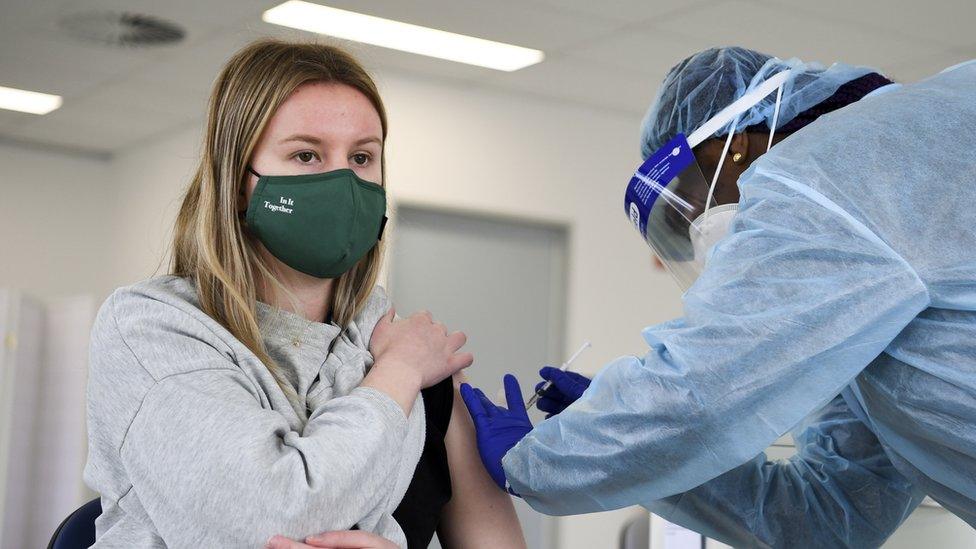
- Published14 August 2021
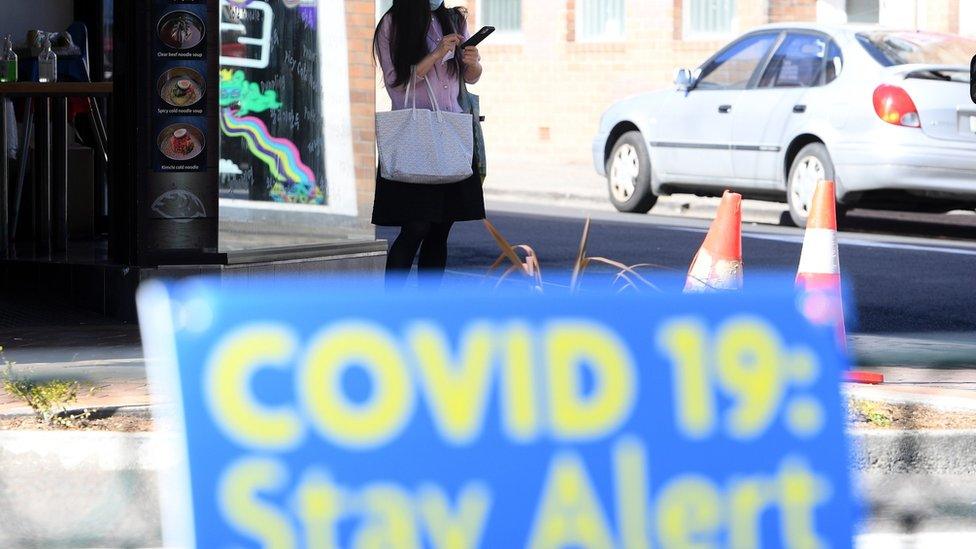
- Published18 August 2021
